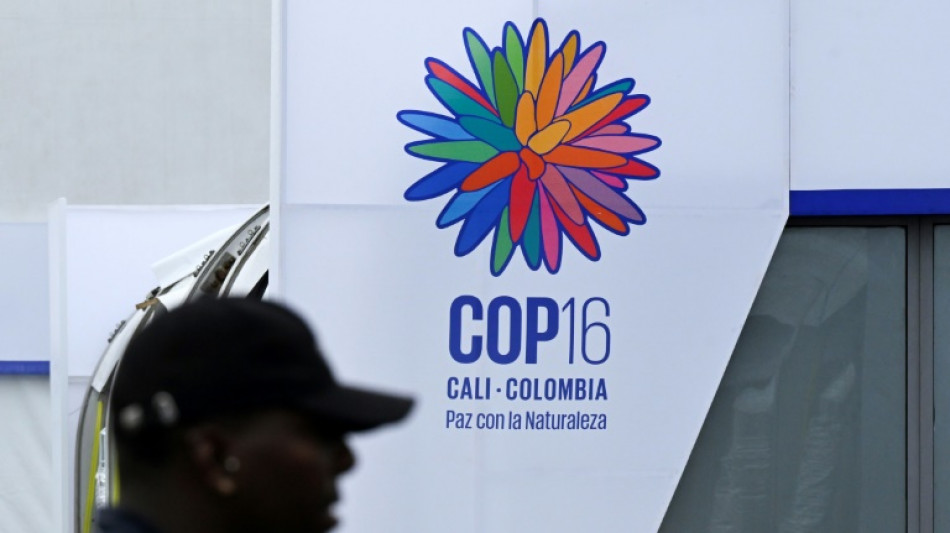
-
 Trump announces tariffs on Iran trade partners as protest toll rises
Trump announces tariffs on Iran trade partners as protest toll rises
-
Sabalenka favourite at Australian Open but faces Swiatek, US threats

-
 Gay Australian footballer Cavallo alleges former club was homophobic
Gay Australian footballer Cavallo alleges former club was homophobic
-
Trump has options on Iran, but first must define goal

-
 Paris FC's Ikone stuns PSG to knock out former club from French Cup
Paris FC's Ikone stuns PSG to knock out former club from French Cup
-
Australia's ambassador to US leaving post, marked by Trump rift
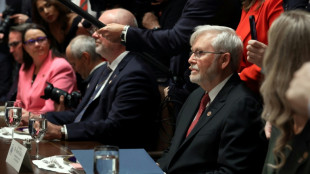
-
 Slot angered by 'weird' Szoboszlai error in Liverpool FA Cup win
Slot angered by 'weird' Szoboszlai error in Liverpool FA Cup win
-
Szoboszlai plays hero and villain in Liverpool's FA Cup win

-
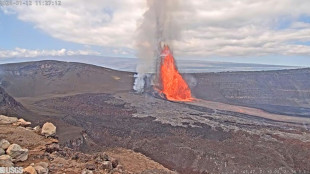 Hawaii's Kilauea volcano puts on spectacular lava display
Hawaii's Kilauea volcano puts on spectacular lava display
-
US stocks at records despite early losses on Fed independence angst
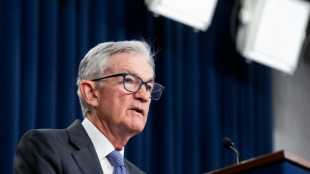
-
 Koepka rejoins PGA Tour under new rules for LIV players
Koepka rejoins PGA Tour under new rules for LIV players
-
Ex-France, Liverpool defender Sakho announces retirement

-
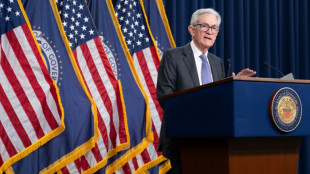 Jerome Powell: The careful Fed chair standing firm against Trump
Jerome Powell: The careful Fed chair standing firm against Trump
-
France scrum-half Le Garrec likely to miss start of Six Nations

-
 AI helps fuel new era of medical self-testing
AI helps fuel new era of medical self-testing
-
Leaders of Japan and South Korea meet as China flexes muscles
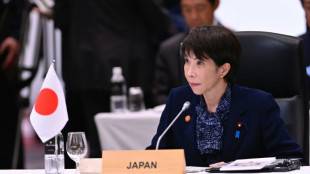
-
 Trump sets meeting with Venezuelan opposition leader, Caracas under pressure
Trump sets meeting with Venezuelan opposition leader, Caracas under pressure
-
Australia captain Alyssa Healy to retire from cricket

-
 US 'screwed' if Supreme Court rules against tariffs: Trump
US 'screwed' if Supreme Court rules against tariffs: Trump
-
NATO, Greenland vow to boost Arctic security after Trump threats

-
 Israel to take part in first Eurovision semi-final on May 12
Israel to take part in first Eurovision semi-final on May 12
-
How Alonso's dream Real Madrid return crumbled so quickly

-
 Ex-Fed chiefs, lawmakers slam US probe into Jerome Powell
Ex-Fed chiefs, lawmakers slam US probe into Jerome Powell
-
Former Panama leader on trial over mega Latin America corruption scandal
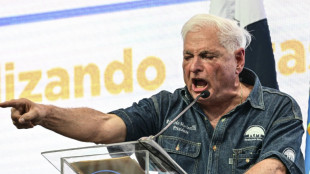
-
 Trump keeping Iran air strikes on the table: White House
Trump keeping Iran air strikes on the table: White House
-
Paramount sues in hostile bid to buy Warner Bros Discover

-
 Ugandan opposition leader Bobi Wine warns of protests if polls rigged
Ugandan opposition leader Bobi Wine warns of protests if polls rigged
-
Airbus delivers more planes in 2025

-
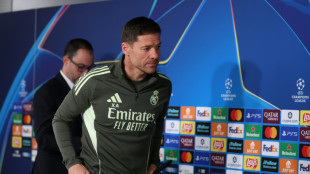 Alonso leaves Real Madrid, Arbeloa appointed as coach
Alonso leaves Real Madrid, Arbeloa appointed as coach
-
UK pays 'substantial' compensation to Guantanamo inmate: lawyer
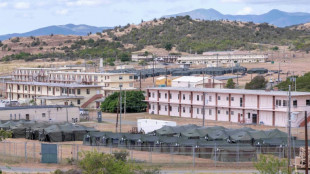
-
 Iran protest toll mounts as government stages mass rallies
Iran protest toll mounts as government stages mass rallies
-
Gold hits record high, dollar slides as US targets Fed
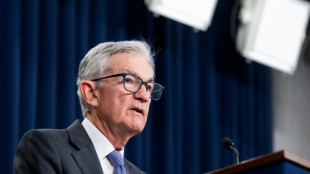
-
 Cuba denies being in talks with Trump on potential deal
Cuba denies being in talks with Trump on potential deal
-
Scientists reveal what drives homosexual behaviour in primates

-
 Venezuela releases more political prisoners as pressure builds
Venezuela releases more political prisoners as pressure builds
-
15,000 NY nurses stage largest-ever strike over conditions

-
 Rosenior plots long Chelsea stay as Arsenal loom
Rosenior plots long Chelsea stay as Arsenal loom
-
Zuckerberg names banker, ex-Trump advisor as Meta president

-
 Reza Pahlavi: Iran's ex-crown prince dreaming of homecoming
Reza Pahlavi: Iran's ex-crown prince dreaming of homecoming
-
Venezuela releases more political prisoners

-
 Kenya's NY marathon champ Albert Korir gets drug suspension
Kenya's NY marathon champ Albert Korir gets drug suspension
-
US prosecutors open probe of Fed chief, escalating Trump-Powell clash

-
 Russian captain in fiery North Sea crash faces UK trial
Russian captain in fiery North Sea crash faces UK trial
-
Carrick is frontrunner for interim Man Utd job: reports

-
 Iran government stages mass rallies as alarm grows over protest toll
Iran government stages mass rallies as alarm grows over protest toll
-
Variawa leads South African charge over Dakar dunes

-
 Swiss inferno bar owner detained for three months
Swiss inferno bar owner detained for three months
-
Heathrow airport sees record high annual passenger numbers

-
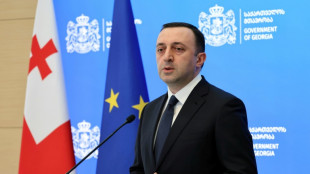 Georgia jails ex-PM for five years amid ruling party oustings
Georgia jails ex-PM for five years amid ruling party oustings
-
Kyiv buries medic killed in Russian drone strike


Climate change solutions not always good for biodiversity
Some approaches to tackling global warming can have unintended knock-on consequences for nature and the protection of biodiversity, say scientists urging a more coordinated effort on these challenges.
"Sometimes by trying to find a solution to a problem, we risk creating damage elsewhere," Anne Larigauderie at the Intergovernmental Scientific and Political Platform on Biodiversity (IPBES), an expert independent body, told AFP.
The IPBES will publish a report in December on how different crises -- including climate change and biodiversity loss -- are closely related and should be addressed together, not in isolation.
The IPBES and the UN's Intergovernmental Panel on Climate Change (IPCC) warned in 2021 that a siloed approach risked "actions which, inadvertently, prevent the resolution of one or the other problem, or even both."
In Britain, for example, an ostensibly sound policy of planting trees on wetlands backfired when in turn these carbon-rich landscapes dried up, releasing the planet-heating emissions stored in their roots and soil.
- Negative effects -
Climate Action Network, a collective of non-government organisations, has warned against "false solutions" which promise a healthier planet but with a cost to people or ecosystems attached.
Intentionally injecting iron into the oceans, for example, to boost microplankton growth may seem promising but "geoengineering" techniques have raised concerns about potential repercussions.
Alison Smith, a researcher at the University of Oxford, said iron fertilisation was "likely to cause massive environmental damage for uncertain climate gain."
"Measures taken to mitigate climate change must be evaluated according to their overall benefits and risks and not only according to their carbon footprint," said the Foundation for Biodiversity Research in 2022.
Wind turbines produce clean power and reduce the dependence of energy systems on fossil fuels, but can pose a risk to migratory birds or bats in some locations.
And building dams for hydroelectricity can block the passage of fish along waterways, reducing their populations.
- 'Breaking down silos' -
"With crises as vast, complex and interconnected as climate change and biodiversity loss, focusing on one aspect of the problem will never be enough," said Tom Oliver at the University of Reading.
It is "important to look beyond 'sticking plaster fixes'" such as geoengineering, he said, which "can have huge anticipated side effects."
Installing "underwater curtains" to protect glaciers in Antarctica from warming waters -- an idea floated at last year's UN climate summit -- could impede nutrient flow, Lars Smedsrud, from the University of Bergen, wrote in the journal Nature this year.
In the quest for solutions to our biggest and most daunting challenges it is "important to look at the big picture -- not just focus narrowly on climate change," said Smith.
She is one of many experts pushing for nature-based solutions that have "combined benefits for biodiversity, the climate and populations".
A 2020 study in the journal Global Change Biology concluded that "nature-based interventions were most often shown to be as effective or more so than alternative interventions for addressing climate impacts."
And it is in preserving existing ecosystems, rather than trying to recreate new ones, that the potential is greatest.
A 2023 study in Nature found that simply protecting existing forests and leaving them alone to regenerate would deliver considerable carbon removal benefits.
"There is no one single silver bullet -- we need to do everything we can, across all sectors, countries and methods," said Smith.
"Breaking down silos is the only way forward that won't cause more problems than it solves."
A.Suleiman--SF-PST



